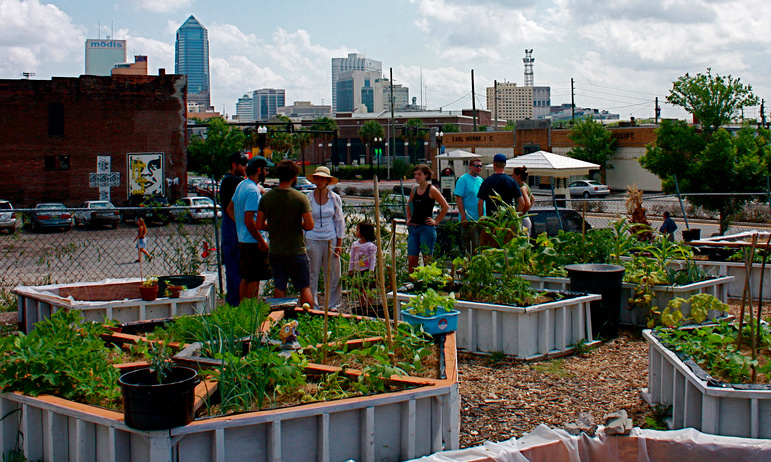
Urban Farms and Gardens Are Feeding Cities Around the World
Around 15 percent of the world's food is now grown in urban areas. According to the U.N. Food and Agriculture Organization (FAO), urban farms already supply food to about 700 million residents of cities, representing about a quarter of the world’s urban population. By 2030, 60 percent of people in developing countries will likely live in cities.
July 20, 2015 | Source: Food Tank | by Danielle Nierenberg, Emily Nink, and Juliette Crellin
Around 15 percent of the world’s food is now grown in urban areas. According to the U.N. Food and Agriculture Organization (FAO), urban farms already supply food to about 700 million residents of cities, representing about a quarter of the world’s urban population. By 2030, 60 percent of people in developing countries will likely live in cities.
At Food Tank, we are amazed by the efforts of hundreds of urban farms and gardens to grow organic produce, cultivate food justice and equity in their communities, and revitalize urban land. Urban agriculture not only contributes to food security, but also to environmental stewardship and a cultural reconnection with the land through education.
“The 2015 Sustainable Development Goals (SDGs) recognize the importance of building sustainable cities,” says Maurizio Baruffi, Chief of Staff of the Mayor of Milan, Italy. “The City of Milan is partnering with urban areas around the world to embark on this journey, starting from food.”
Do you want to discover urban agriculture projects in your own city, or are you interested in visiting farms during your travels to new urban areas? Check out these inspiring projects, and find even more links to urban agriculture projects below.
Abalimi is an urban agriculture and environmental action group located outside of Capetown, South Africa. The organization supports and assists groups and individuals looking to improve their livelihoods through organic farming.
Alternatives’ Feeding Citizenship
A nonprofit that promotes social and environmental justice in Montreal, Canada, Alternatives’ Feeding Citizenship is growing healthy food to fuel healthy communities. The project engages the community through horticultural training programs while supporting school and neighborhood gardens.
Baltimore Urban Gardening with Students (BUGS)
An after-school and summer program, BUGS provides children from low-income neighborhoods in Baltimore, Maryland with a safe place for learning. Kids can garden, visit local farms, and try new foods while improving math and reading skills as well as exploring creative entrepreneurial projects.
Located in Puerto Maldonado, Peru, Camino Verde’s mission is to plant trees and encourage environmental stewardship through educational programs and public awareness. The project’s Living Seed Bank acts as a botanical garden with over 250 tree species and protects endangered varieties. Camino Verde has planted over 70 different fruit trees, 40 flowering species, and enough trees to cover seven hectares of land.
Serving communities in Canberra, Australia, Canberra City Farms is dedicated to establishing learning hubs where people can collaborate and share their knowledge of sustainable and environmentally responsible food production.
